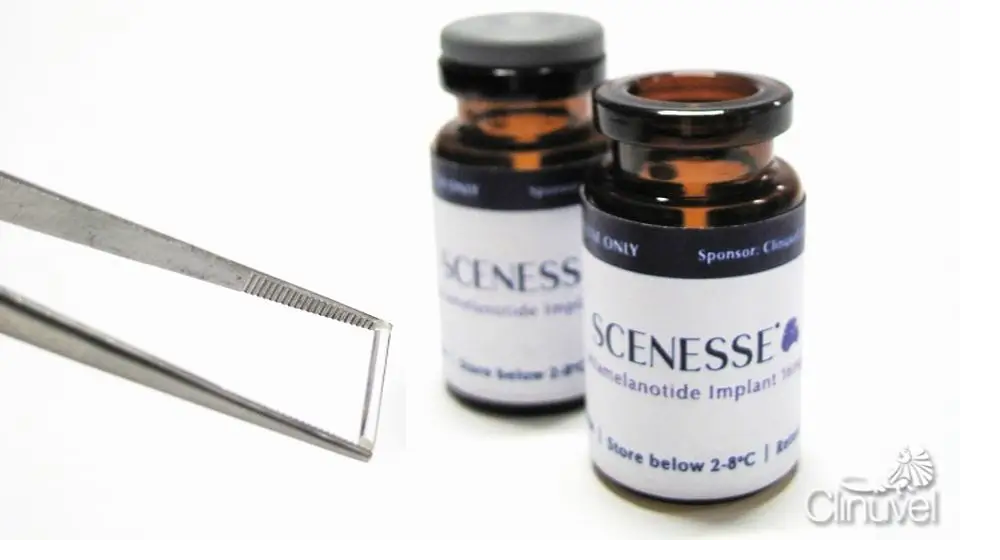Clinuvel gets approval in US for rare skin disorder drug Scenesse

Australian biotech Clinuvel has claimed a US approval for Scenesse, a treatment for a rare skin disorder that causes extreme sensitivity to light.
The under-the-skin implant has been cleared by the FDA to treat erythropoietic protoporphyria (EPP), a genetic disorder that causes severe pain on exposure to sunlight as well as artificial light, such as fluorescent bulbs.
Scenesse has been approved in Europe for the same indication since 2014, and made sales of A$31 million (around $21 million in US dollars) in the year to 30 June 2019, a rise of 22%, according to Clinuvel’s latest financial report.
Scenesse (afamelanotide) is the first drug to be approved for EPP, which is caused by deficiency in an enzyme (ferrochelatase) that leads to high levels of protoporphyrin IX in the skin and other tissues such as the bone marrow and blood.
Protoporphyrin molecules are usually converted to create haem, a component of the oxygen-carrying haemoglobin molecule in red blood cells. When accumulated in the skin they react to light in the skin to form free radicals that damage skin cells and along with pain can cause swelling, blisters, and ulcerations that can form scars.
Clinuvel’s implant carries a melanocortin-1 receptor (MC1-R) agonist that increases the production of eumelanin, one of two forms of the natural skin pigment melanin. Eumelanin is found in people with darker skin, while the other form – pheomelanin – is more prevalent in light-skinned people.
In clinical trials, Scenesse was able to increase the number of hours patients with EPP could spend in sunlight with no pain compared to placebo, said the FDA in a statement.
In one 93-patient study, Scenesse-treated patients withstood 64 hours of sunlight with no pain over a 180-day period, versus 41 hours for the placebo group.
A second study over 270 days showed that patients with the drug implant were able to withstand six hours of daily sunlight on average with no pain, compared to just 45 minutes with placebo.
The green light from the FDA caused a 60% spike in Clinuvel’s share price that made it one of the top 150 listed companies on the ASX, just a few months after making its debut on the exchange, as investors looked forward to what could be a sizeable increase in revenues for Scenesse.
Scenesse’s approval in Europe was the first time that the EMA took into account testimony from patient groups in deciding to approve a drug that at the time had limited efficacy data, but patients in the US were unable to accelerate its FDA review.
The American Porphyria Foundation (APF) – which has been lobbying hard for access to the drug for years – says EPP is the third most common form of porphyria with a prevalence of 1 in 200,000 to 1 in 75,000 in different populations.
Clinuvel has still faced payer resistance in Europe, however. UK cost-effectiveness agency NICE rejected the drug in 2017 but re-opened its review after an appeal last year. The new appraisal is still in progress, with the last committee meeting held in March.











